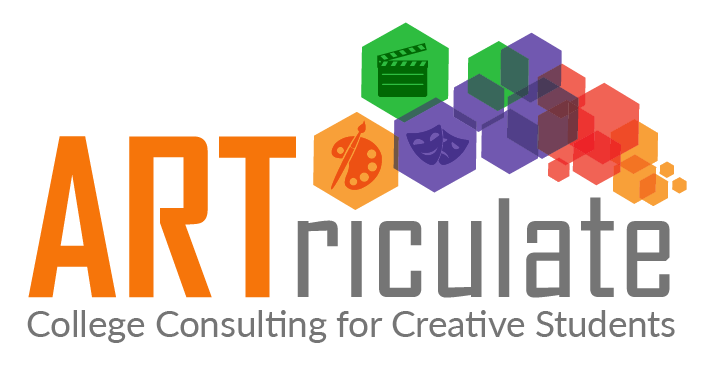Writing Your Artist’s Statement
Whether you're applying for a BFA in visual arts or film, or possibly the performing arts, you will likely be asked to write an Artist Statement, also sometimes called a Personal Statement (different from the one you will write for the Common Application). Writing about your work is a difficult process and the focus of each prompt may be slightly different for each school so pay attention and to the prompts! Your Artist's Statement is important, as it shows colleges that you are a strong writer, and gives them more insight into you as a creator. Give yourself plenty of time to think, write, and review these essays before finalizing and submitting them to colleges.
What is an Artist Statement?
An Artist's Statement is usually two or three paragraphs that:
Presents your ideas about your work
Tells what or who influences or inspires your work
Tells how your technique or methods support your work
Explains how and why you created your art and your overall vision for it
Tells a story about one more pieces of work in your portfolio
Could explain the materials you used, why, and how they were successful (or how they could be changed and improved)
How to write a successful Artist Statement
Read the prompts, we can’t stress that enough, including the allowable word count.
Find a quiet time to review your art and focus on the questions above and any extra question the prompt may include, especially, “why do you want to attend our program?” or something similar.
Be clear and precise. While it is fine to use technical terms that you typically use comfortably, avoid adding a lot of jargon or terms just to sound lofty. You want the reader to understand what you are saying without having to decipher your words. Most of all, you want the reader to learn who you are and to understand your art. If a specific artist, piece or movement has influenced your work, be specific and say what it is and how it has influenced you.
Use the "active" first-person voice which also simplifies your writing. Some find it helpful to read and then playback what you've written as listening gives you another way to hear if your words make sense and accurately express what you mean.
Use spell check (especially on your final draft right before submission), and check your grammar. Find a trusted reviewer to read and proofread your statement.
Make it personal. It is about you and your great work, tell your story.
